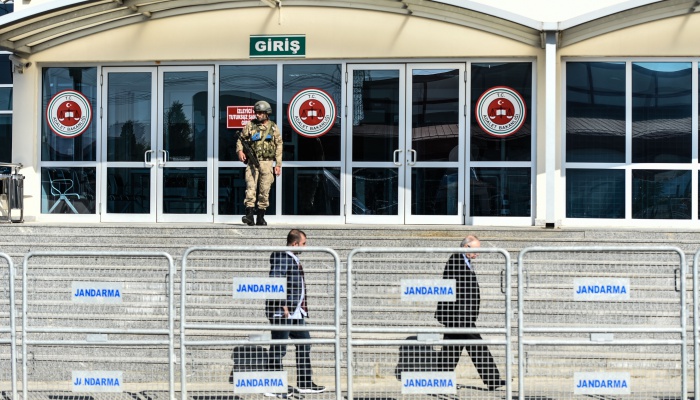The Council of Europe’s Committee for the Prevention of Torture and Inhuman or Degrading Treatment or Punishment (CPT) on Wednesday published reports on its 2017 periodic visit and 2019 ad hoc visit to Turkey, raising several allegations of abuse of detainees at the hands of the Turkish authorities.
“The main objective of the 2017 and 2019 visits was to examine the treatment and conditions of detention of persons detained by the police/gendarmerie,” the Council of Europe said in a statement. “To this end, the CPT’s delegation interviewed hundreds of persons who were or had recently been held in police custody, including on suspicion of terrorism-related offences, in the Ankara, Diyarbakır and İstanbul area.”
The reports noted ongoing problems of arbitrary treatment, ill-treatment, unhealthy prison conditions, overcrowding, torture and harassment by officials, outlining the details of several such allegations.
“The CPT also remains concerned about the existence of legal restrictions regarding access to a lawyer during the initial phase of police custody for certain serious crimes, and it emphasises the importance for the prevention of ill-treatment of guaranteeing such access from the very outset of police custody,” the 2019 report noted.
“Further, despite the specific recommendations repeatedly made by the Committee after previous visits, the system of mandatory medical controls at the outset and end of police/gendarmerie custody remained fundamentally flawed,” it added.
“Moreover, the CPT notes with great concern that, in the same way as during previous visits to Turkey, the health-care services in the prisons visited were poorly resourced. For instance, at Silivri Prison No. 5 and Maltepe Prison No. 3, holding some 2,800 and 2,500 inmates respectively, there was only one doctor and five nurses. At Şanlıurfa T-type Prison No. 1, there was only one doctor and four nurses for almost 1,600 prisoners.”
“Moreover, several persons claimed that they had been threatened not to show their injuries by police officers present during medical controls.”
The 2019 report said “the problem of prison overcrowding remained acute, and the steady increase in the size of the prison population already observed in the mid-2000s continued. … Consequently, a large number of prisoners in these establishments did not have their own bed and had to sleep on mattresses placed on the floor.”
It also added that “all prisoners were being held in solitary confinement for most of the time (i.e. 159 hours out of 168 hours per week, including 24 hours per day at weekends). In the Committee’s view, such a state of affairs is not acceptable.”
The committee also underlined that its previous calls for an overhaul of Turkey’s detention regime were ignored by the government.
